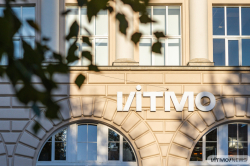The main theme of the third AIMission meeting was the development of multi-agent approaches for applied problems in industry, urban planning, project management, and education.
“In the coming years, we may see the emergence of strong AI systems, including professional ones. Unlike existing “narrow” solutions, these will cover various tasks within industries, ensure their relevance through self-learning, and most importantly offer solutions significantly faster than even a strong expert equipped with all digital tools. A sensible methodology for creating such strong AI systems involves multi-agent approaches based on large foundational models. And the development of methods and tools for creating and training such models ultimately defined the agenda of ITMO’s AI centers for 2024,” says Alexander Boukhanovsky, the head of ITMO’s School of Translational Information Technologies.
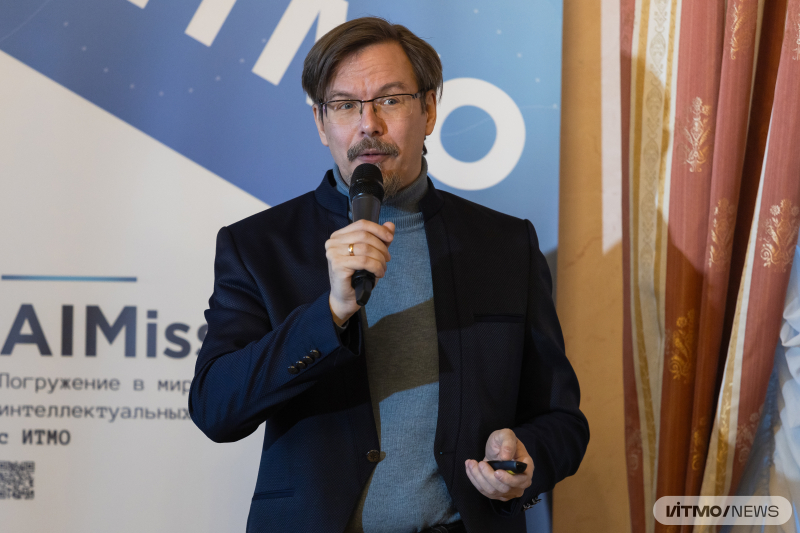
Alexander Boukhanovsky. Photo by Dmitry Grigoryev / ITMO.NEWS
AI assistants
Digital Mayor is an intelligent assistant that makes the collection and analysis of information five times faster in order to comprehensively support decision-making in urban territory management. It was developed by a team led by Sergey Mityagin, the director of the Institute of Design and Urban Studies at ITMO. Upon user request, the tool gathers and analyzes information (such as regulatory and legal documents and data on geography, population, and social infrastructure of the city) and helps the administration make decisions regarding urban space development. For example, Digital Mayor can display schools on a map of a specific area, assess whether there are enough schools and if they are easily accessible on foot, as well as summarize residents’ complaints on various issues. Additionally, the AI assistant can answer questions about real plans for city development by referencing official documents and, using predictive AI models, suggest where to build a new school and how it would change the neighborhood’s dynamics.
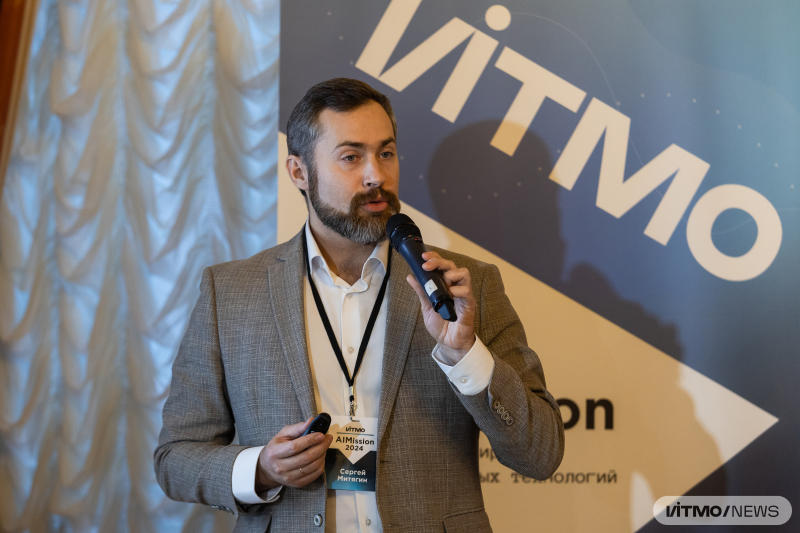
Sergey Mityagin. Photo by Dmitry Grigoryev / ITMO.NEWS
Digital managers
With the intelligent multi-agent, LLM-based decision support system STAIRS, the planning of industrial business processes under conditions of uncertainty and incomplete data is made easier. Created by ITMO researchers in collaboration with Gazprom, the tool helps to quickly and accurately generate multiple estimates and work plans for complex tasks, such as major construction projects or the development of natural resources deposits. According to Yuri Kaminsky, an engineer at the National Center for Cognitive Research at ITMO, unlike manual planning, STAIRS can handle 100,000 processes and 1,000 executors in a single plan, offer alternative options for experts to choose from, reduce working time by up to 20 times, and increase planning efficiency by up to 30%.
To achieve such results, the system first processes the data accumulated by a company – project estimates, target indicators, expert reports, and regulations. It then automates the entire planning process: from analyzing the cost-estimate documentation to generating, optimizing, and validating schedules, as well as providing recommendations on which approach would best suit each implementation scenario. Additionally, the AI planner is capable of solving the opposite problem – verifying whether a contractor has accurately prepared the cost estimate by comparing it with its own.
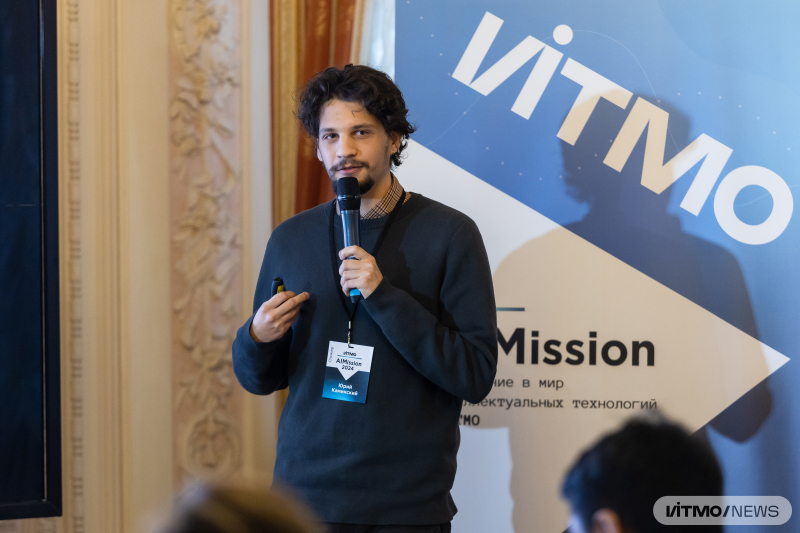
Yuri Kaminsky. Photo by Dmitry Grigoryev / ITMO.NEWS
How can top managers receive assistance in decision-making if they cannot share sensitive data with existing LLMs and general-use AI assistants can’t offer specialized solutions? Following a request from the oil company Tatneft, the team of Denis Nasonov, a senior researcher at the National Center for Cognitive Research, created Akela, an intelligent decision support system. It accounts for a company’s internal bylaws, principles, and business processes, as well as knowledge in applied fields; the system is capable of answering complex questions based on expertise of various specialists.
Akela is a multi-agent environment that combines numerous specialized agents based on large language models. Each agent is responsible for a specific narrow task in the field of oil extraction and processing such as analytics, operational activities, scientific research, or construction calculations. The agents’ actions are coordinated by a meta-agent called the orchestrator, which prioritizes tasks and monitors their execution. In practice, Akela operates as follows: an employee of the company poses a question to the chatbot: for example, asking how long Tatneft has been using a specific method to enhance oil recovery or what chemical reagents are used for this purpose. The meta-agent determines the context of the request and organizes the response chain execution by invoking the appropriate specialized agent with the relevant query. The latter, utilizing a large language model, prepares a detailed answer supported by company documents. In the future, Akela can be used to create an individual avatar for a Tatneft employee in the company’s digital space, which will assist real specialists in optimizing their work by freeing them from routine tasks.
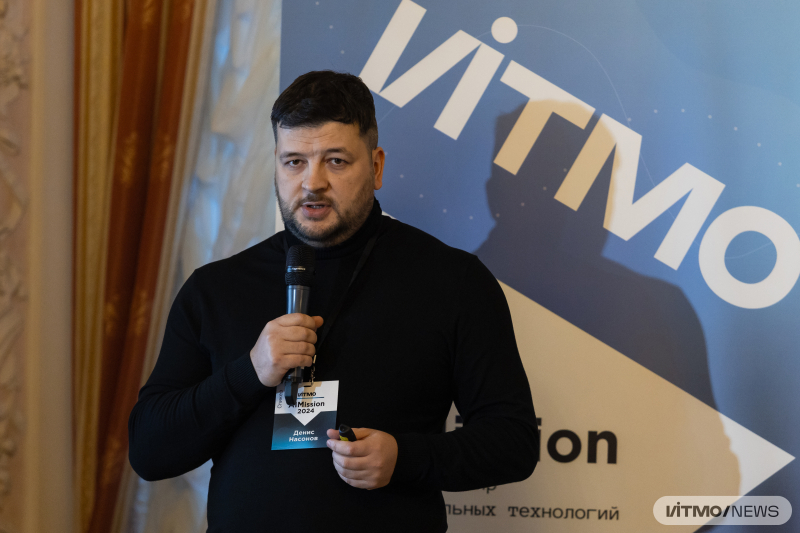
Denis Nasonov. Photo by Dmitry Grigoryev / ITMO.NEWS
AI helping AI
FEDOT.LLM is an intelligent assistant based on automated machine learning that simplifies the implementation of AI into a company’s business processes. This solution helps users who don’t specialize in automated AI create predictive models 10 times faster. Moreover, the machine-suggested solution will be 75% more efficient than a human-developed analog, as shared by Nikolay Nikitin, the head of the R&D group at the Research Center “Strong AI in Industry.”
Users can work with FEDOT.LLM via freely written prompts. The assistant turns them into structured tasks, analyzes the input using the FEDOT or FEDOT.Industrial frameworks, generates code for a model, and offers the solution. FEDOT.LLM can tackle classification, regression, time series prediction and anomaly detection; for instance, analyzing a client’s credit record to predict if they’d pay out their debt, or evaluating an oil well’s schedule to plan out the next six months of work.
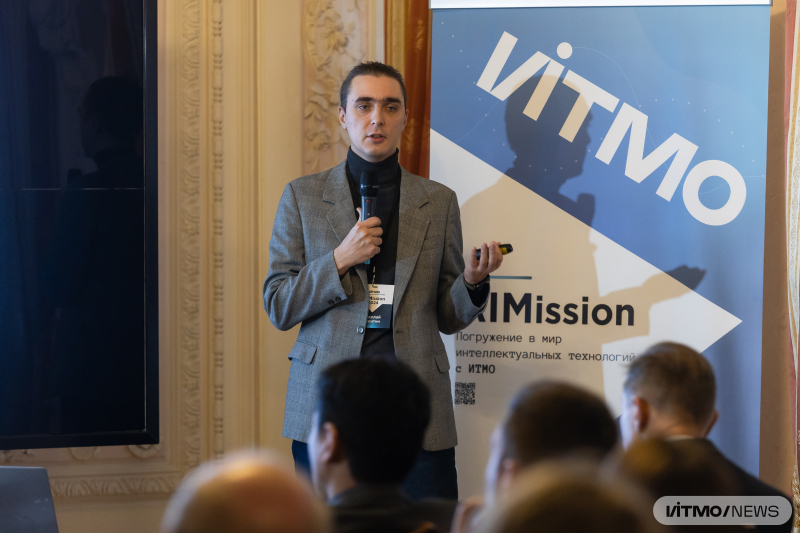
Nikolay Nikitin. Photo by Dmitry Grigoryev / ITMO.NEWS
But how does a specific AI model work, and what results does it produce? Can it be trusted? And how will the accuracy of the answers change if the model is adjusted? Such questions arise among employees of companies that do not specialize in AI but use ready-made solutions. Turning to the official Russian standard (GOST) on evaluating the quality of AI systems can complicate matters even further. Therefore, a team led by Sergey Ivanov, a senior researcher at the National Center for Cognitive Research at ITMO, created a more user-friendly solution – a digital test bed for testing and assessment of the quality of various AI systems. It explains to users how a particular AI algorithm is structured, what it is needed for, how it interacts with data, and how it arrives at specific results. Additionally, the digital test bed allows users to evaluate the accuracy, applicability, retraining potential, and resource capabilities of AI systems and test them under extreme conditions. As a result, users not only receive a protocol for assessing the results of the AI model, but also spend four times less time organizing tests.
Sergey Ivanov. Photo by Dmitry Grigoryev / ITMO.NEWS
AI in science and education
A digital assistant for chemists, created by the team of Anna Kalyuzhnaya, a senior researcher at the Research Center “Strong AI in Industry,” in collaboration with Sberbank, will facilitate the work of chemical researchers, as well as the staff of pharmaceutical companies and chemical productions. With the help of this solution, it is possible to generate new chemical compounds and refine existing ones for new drugs and materials, search for new synthesis algorithms, predict chemical properties, and extract knowledge from scientific articles on chemistry. Even though separate ChemCoScientist agents are responsible for coordinating the work, generating new knowledge, and analyzing articles, users communicate with a single chatbot. Recently, this solution became one of the winners of an open call for projects within ITMO’s 2030 Development Strategy.
AI is also used in education. Recently, ITMO and Alfa-Bank collaborated on a continuous professional development course on introducing AI into higher education programs. Over two months, 155 teachers from 52 Russian cities and the CIS countries learned to collect and prepare data, train LLMs, use existing libraries and frameworks, write prompts, and evaluate AI models. Having defended their final projects, the participants received state-recognized certificates of professional training.
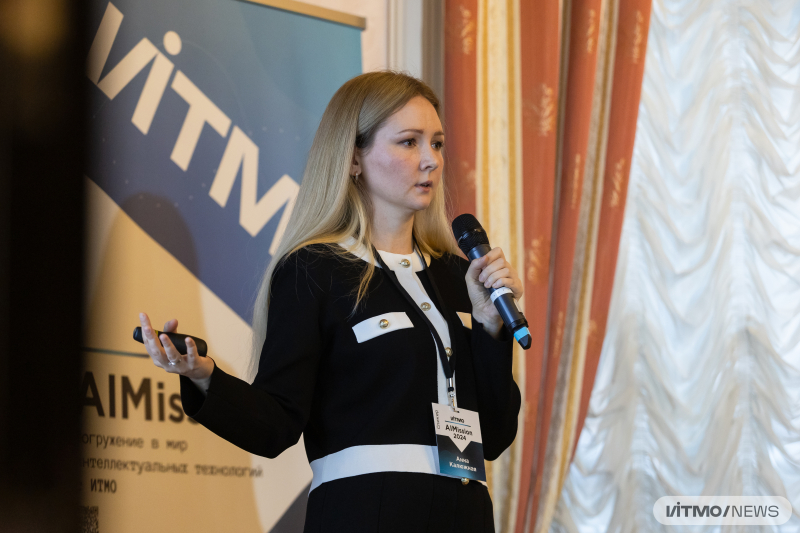
Anna Kalyuzhnaya. Photo by Dmitry Grigoryev / ITMO.NEWS
ITMO staff and students interested in open-source software and looking to develop their own AI and ML solutions are welcome to join ITMO OpenSource, the largest academic open-source community in Russia. In the two years since its foundation, over 1,100 of the community’s members have developed and published more than 30 open-source frameworks and libraries used by NVIDIA, Uber, Google, JetBrains, and other major companies. They also organize meetups on AI solutions, and have recently conducted a study on the use of open-source solutions in Russia, naming the top three Russian developers in the field.



